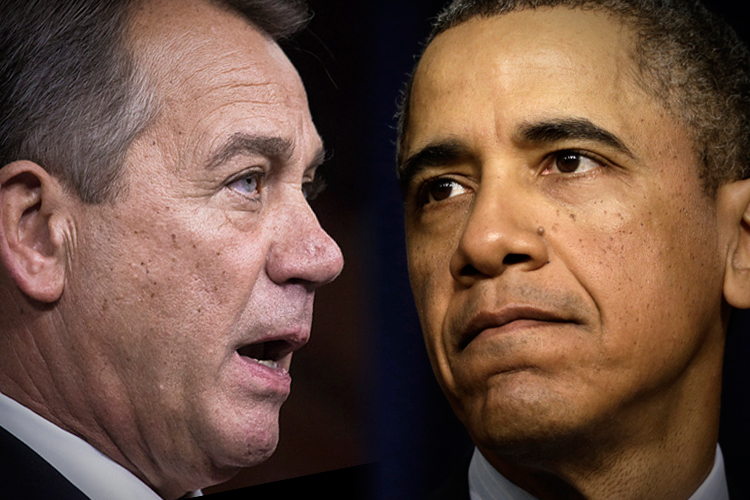It was less than 18 months ago that the U.S. Senate passed a comprehensive immigration reform bill that beefed up border security and included a pathway to citizenship for unauthorized migrants. The legislation passed on a bipartisan vote of 68 to 32, but as we remember all too well, immigration reform slowly languished as House Speaker John Boehner, fearful of a rebellion from his party’s restive Tea Party caucus, refused to bring it up for a vote in the chamber.
In the absence of congressional action, President Obama is weighing the use of his executive authority on items like deportation relief. Speaking before reporters Wednesday in his post-election news conference, the president held out hope that the new Congress would pass an immigration bill, but he reserved the right to take executive action if lawmakers continued to punt on the issue. But now, Boehner is saying that such a move would kill any chance of Congress ever acting.
“If the president acts on his own, he will poison the well,” Boehner said at a Thursday press conference. “If you play with matches, you can risk burning yourself. The American people made it clear on Election Day: They want to get things done and they don’t want the president acting on a unilateral basis.”
So will Boehner bring immigration up for a vote? He isn’t making any promises. As Jonathan Chait observes, “Boehner’s offer is that Obama can act on his own, or open the mystery box.”
At this point, it’s already quite clear what the mystery box contains. The crop of House Republicans who will convene next January is even further to the right than the current GOP conference, and if Boehner continues to follow the so-called Hastert rule — that no legislation will come up for a vote unless it has support among a majority of the majority party — then immigration reform is dead on arrival in the 114th Congress. Moreover, with only a minuscule number of House Republicans representing districts with large Hispanic populations, there’s little political incentive for members to act, particularly when voting for an immigration reform measure may trigger a conservative primary challenge.
Despite these daunting dynamics, a handful of Beltway pundits are still willing to suspend disbelief and assert that immigration reform remains a real possibility under a unified GOP Congress. But Boehner shows no inclination to proceed on the issue, and it’s far from inconceivable that he waged his preemptive attack on executive action with the full knowledge that Obama will likely take some unilateral measures on immigration. And once the president does so, Boehner will have the excuse he’s been looking for to kick the can further down the road.


